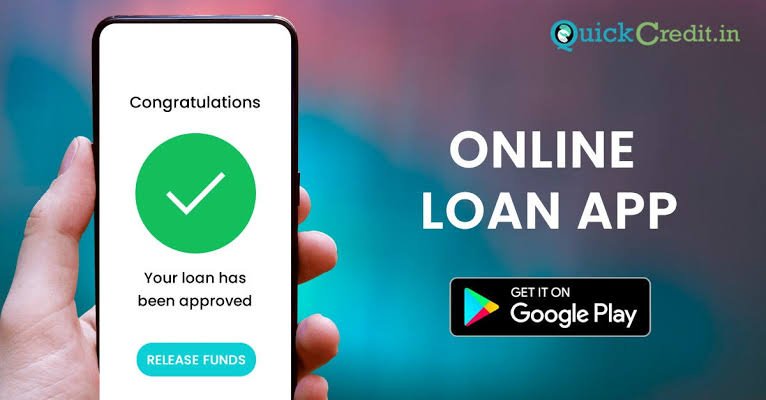
When I was a university student a few years ago, I found myself constantly in need of small amounts of money for expenses like transportation, food, and data. That’s when I discovered mobile loan apps and thought they were a quick fix to my cash flow problems. I downloaded a few from the Google Play Store and was approved for small loans within minutes since they didn’t require collateral or guarantors.
At first, the loans helped cover my short-term needs. However, it didn’t take long for the high-interest rates and penalties to pile up. Before I knew it, I owed upwards of 100,000 Naira to several different apps and was stuck in a debt trap. No matter how hard I hustled with side jobs, the repayment amounts always outpaced my income. It was a stressful situation that took me over a year to pay off completely. That’s when I realized how useless these apps can be if not used responsibly.
Why Loan Apps Are Tempting but Dangerous
There are a few key reasons why mobile loan apps seem appealing yet risky:
Instant Approval
Many apps promise quick loans within minutes without credit checks. This convenience ignores responsible lending practices.
Predatory Rates
While interest rates may start around 5% per month, late fees and penalties can surge them to over 100% annually. Users don’t realize how much they’ll ultimately repay.
No Financial Education
Borrowers are not informed on calculating total costs, budgeting, or alternatives like saving clubs. This sets them up for unmanageable debt spirals.
Digital Addiction
The ease of repetitive lending via apps can foster addictive, debt-driven behaviors similar to payday loans or gambling apps.
Alternative Strategies to Consider First
Before resorting to loan apps, try exploring lower-risk options:
Build Emergency Savings
Even 500 Naira per week can create a safety net for unexpected costs instead of high-interest debt. Cut unnecessary expenses.
Join A Savings Club (Ajo or Esusu)
Rotating savings groups provide interest-free credit from pool contributions and foster financial discipline.
Ask Family or Friends
Interest-free loans from trusted networks are safer than platforms designed to profit from your debt payments.
Consider More Regulated Lenders
Explore options like affordable microfinance banks which are subject to responsible lending oversight.
Reduce Expenses Through Budgeting
Track spending to identify unnecessary costs that can be cut to lessen future cash flow problems.
Tips to Get Out of the Loan App Debt Trap
If you’re already indebted, here are some strategies to escape:
Stop Taking Out More Loans
Resist the temptation of endless digital lending. Each new loan only increases repayment hardship.
Negotiate Payment Plans
Contact lenders to request more reasonable terms, interest waivers, or partial debt forgiveness if possible.
Consider Debt Consolidation
Find an affordable loan to pay off multiple high-cost debts and lower your monthly repayment burden.
Generate Side Income
Freelance gigs on platforms like Fiverr, jobs on ride-hailing apps, or selling goods can create extra cash flow for debt repayment.
Cut Expenses to the Bone
Minimize discretionary spending until your debts are cleared to allocate more funds to repayment each month.
Declare Bankruptcy as a Last Resort
In extreme cases, bankruptcy protections may provide relief, but it severely damages your credit profile.
Staying Loan App-Free for Good
Once debt-free, follow these habits to avoid apps in the future:
Automate Savings Deposits
Link your account to savings so a fixed percent is automatically transferred each payday into a separate savings account.
Build a Budget with Buffer
Estimate your expenses accurately with a 10-20% buffer for lifestyle inflation or unexpected costs rather than turning to loans.
Track Your Progress Publicly
Share savings and debt repayment goals on social media to leverage accountability from your network.
Lean on Support Systems
Enlist trusted friends or community groups to help stay on track when temptation arises by checking in regularly.
Conclusion
Loan apps are designed to exploit behavioral biases and keep customers in endless cycles of debt. With proactive financial education and alternatives like savings groups, regulated lenders, or reliable emergency funds, you can avoid their harmful traps. While self-discipline is required, focusing on core financial responsibilities like budgeting, expense tracking and responsible credit use will lead to greater prosperity over time.
Frequently Asked Questions
What are some early warning signs I’m at risk of a loan app debt spiral?
Missing payments or using one loan to pay off another are red flags. Other signs include feeling stressed about accumulating costs, taking out larger and larger loan amounts, or using over half your paycheck for debt repayment each month.
What should I do if I’ve become addicted to mobile loan apps?
Seek help from a financial counselor or credit union to create a debt management plan. You may also find support groups for process or gambling addictions helpful since apps exploit similar psychological triggers. The priority is breaking the cycle safely without taking on further debt.